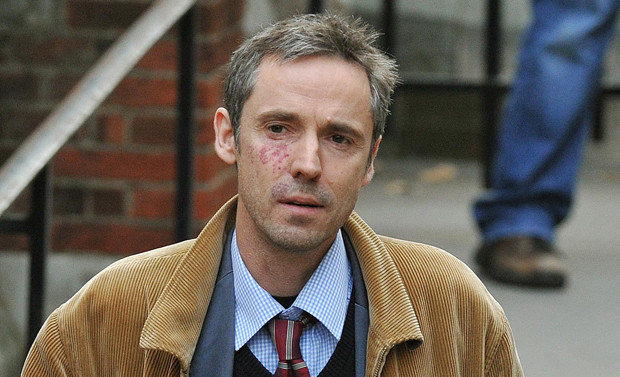Former News of the World deputy features editor Paul McMullan defended the hacking of Milly Dowler's phone today during candid testimony to the Leveson inquiry.
McMullan said that the hacking of the murdered teenager's voicemail while she was missing, the revelation of which propelled the hacking scandal to national attention, was "not a bad thing for a well meaning journalist, that was just trying to find the girl, to have done".
"How lucky it was that the Dowlers had bright, enthusiastic, well-meaning journalists on their side to help look for Milly.
He added: "Our intentions were good, our intentions were honourable and we were doing our best to find the little girl.
McMullan told the inquiry that he had "felt the same emotion at losing a child that Mrs Dowler must have felt" when his son went missing for 20 minutes recently, but warned that people "should put that to one side" when examining what happened.
Earlier in his testimony, he told the court that he regarded phone hacking as "an acceptable tool".
He also criticised the police over Milly Dowler's murder, saying the force was "full of Inspector Clouseaus".
"The police are totally incompetent and should be ashamed that the man who killed her was allowed to carry on."
Asked whether the News of the World had paid policemen for information in the past, McMullan said that it was common practice, especially among crime reporters. He claimed that the newspaper would have paid £2,000 for a page lead and £10,000 for a spread.
"Diana's whereabouts were worth much more than that," he said, adding that they would make "a front page story" and could be worth up to £30,000.
Former News of the World editor Rebekah Brooks appeared to admit before a parliamentary select committee in 2003 that the tabloid had paid police for information, before being cut off by Andy Coulson. She later told the same committee that she had been speaking generally and had "no knowledge of specific payments".
McMullan accused both politicians and police of "cosying up" to News International, and said he believed he was responsible for the resignations of former Met police commissioner Sir Paul Stephenson and assistant commissioner John Yates.
"Yates and the other guy, they fell on their swords because there had clearly been a cover-up because it had become quite an intimate relationship between journalists, police and politicians.
"People have stepped back a bit. The glory days of the 1990s when it was so much fun, before Diana died, have gone."
He told the court that, before Diana's death he had "absolutely loved" chasing celebrities in a car from the News of the World's pool of 12.
Several celebrities giving evidence at the inquiry have described being chased by reporters and papparrazi, both on foot and in their cars, and having their privacy invaded.
McMullan told the court that privacy "was for paedos, no one else needs it".
"I've been invading people's privacy for 21 years and I've never come across anyone who's been doing any good.
"The only people who need privacy are people who haven't been doing any good
"Privacy is for paedos, no one else needs it. Privacy is evil."
More on Paul McMullan's testimony to follow.
Free daily newsletter
If you like our news and feature articles, you can sign up to receive our free daily (Mon-Fri) email newsletter (mobile friendly).










